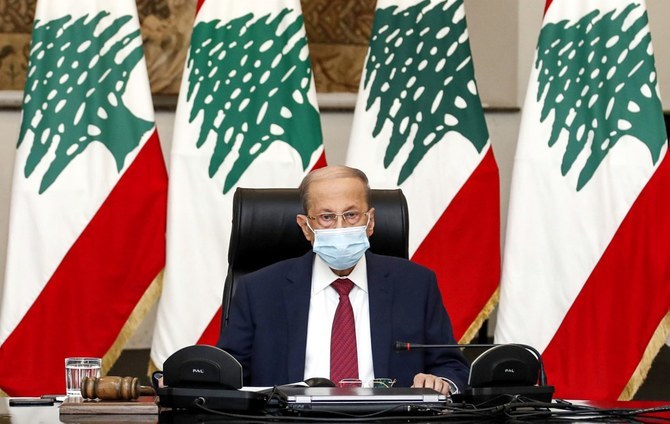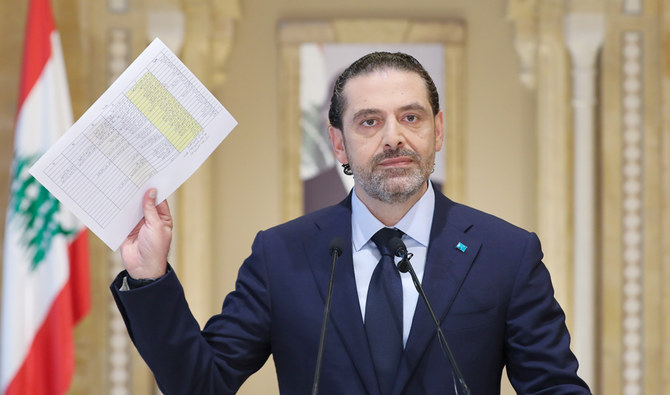BEIRUT (Reuters) - Lebanon's Hezbollah leader Sayyed Hassan Nasrallah on Tuesday dismissed accusations of any links between the group and the killing of researcher and activist Lokman Slim. "Any incident that happens in your area then you are accused until the opposite is proven? Is this something that is practiced in the whole wide world? Where else is this logic present?" Nasrallah said in a televised speech. Activist Lokman Slim was shot and found dead in his car in south Lebanon earlier in February, marking the first killing of a high-profile activist in years. He was a critic of the Iran-backed Hezbollah group. His sister has suggested he was murdered because of those views. Hezbollah has previously condemned the killing.
A filmmaker and publisher, Slim had spoken out against what he called Hezbollah's intimidation tactics and attempts to monopolise Lebanese politics. Nasrallah was also critical on Tuesday about blame pointed at the group for involvement in the Aug. 4 Beirut blast that killed 200 people. "Hezbollah is guilty until proven otherwise - what kind of a rule is that? ...Beirut port - you, Hezbollah, blew up Beirut port until the truth about the explosion is revealed," he said. The judicial investigation into the blast is still under way in Lebanon with judge Fadi Sawan having charged caretaker Prime Minister Hassan Diab, whose cabinet quit after the blast, and three former ministers with negligence. Sawan is due to interrogate one of the three former ministers, Youssef Finianos, a Hezbollah ally sanctioned by the United States for his links to the group that Washington considers a terrorist organisation.

by thearabweekly.com -- BEIRUT - Paralysed by financial crisis and riven with political risk, a number of Lebanon’s banks are struggling to meet a Central Bank target to raise their capital defences by 20% by the end of this month. Less than half of the country’s dozen or so large banks are expected to meet the requirement, which the central bank set in August to reinforce the sector, according to four banking sources with direct knowledge of the situation. Those that are on track to meet central bank targets have largely tapped existing shareholders or depositors, converting local dollar deposits into equity instruments or sold overseas businesses. The situation underscores the scale of the problem facing Lebanon’s banks, heavily exposed to one of the world’s most indebted states and starved of funding. Their customers have largely been frozen out of their dollar deposits and blocked from transferring cash abroad since late 2019.
Given the wall of losses facing the sector, some investors and economists say it’s too little too late anyway. The 20% target laid down by Riad Salameh, Lebanon’s veteran Central Bank governor, is equivalent to around $4 billion, he confirmed to Reuters. That is far short of the $83 billion hole in banks’ balance sheets estimated by the outgoing government last year as part of a financial rescue plan it had drawn up. — ‘All insolvent’ — “They are all insolvent,” said Mike Azar, a debt finance advisor and a former lecturer in international economics at John Hopkins School of Advanced International Studies. “There’s no prospect for recovery as things stand, until there is a sector-wide bank resolution and restructuring and finally a fresh capital raise.”

By NAJIA HOUSSARI - arabnews.com -- BEIRUT: Lebanese President Michel Aoun has blasted Prime Minister-designate Saad Hariri for a speech containing “inaccuracies and incorrect information.” The two leaders have been at loggerheads for months, unable to agree on the formation of a government and each blaming the other for the lack of progress. Hariri returned as prime minister-designate last October, almost a year after he stepped down under street pressure. Lebanon’s government had quit after the Aug. 4 port blast in Beirut and remains in a caretaker capacity. Hariri on Sunday gave a televised speech marking the 16th anniversary of his father’s assassination. He said he was not responsible for the political stalemate that was undermining the country’s ability to deal with the many troubles it was facing, including the coronavirus pandemic, an economy in crisis and the aftermath of the port explosion. He also objected to allegations that he had infringed on the president’s prerogatives in forming the government or on Christians’ rights, but added that he “did not allow the president to choose the ministers he wanted, especially Christian ministers.”
A 1943 unwritten agreement, the Lebanese National Pact, between then-President Bechara El-Khoury and Prime Minister Riad Al-Solh founded independent Lebanon as a multi-confessional state. It was a power-sharing arrangement between Christians and Muslims, whereby the president was always required to be a Maronite Christian, the prime minister a Sunni Muslim, and the speaker of parliament a Shiite. Aoun hit back at Hariri in a statement. “Hariri exploited the anniversary of his father’s martyrdom and included in his speech many inaccuracies and incorrect information. Hariri is trying to impose new norms that are contrary to principles, the constitution, and the Lebanese National Pact,” the president said.

by arabnews.com -- NAJIA HOUSSARI -- BEIRUT: Lebanon’s Prime Minister-designate Saad Hariri said on Sunday that although he had been subjected to “slander and lies,” he was “very patient” and determined to form a new government. In a televised speech marking 16 years since the assassination of his father, Rafik Hariri, he said that he would never accept giving “the blocking third in the government to the president of republic.” Hariri said that during his meeting with Michel Aoun on Friday “the president of the republic asked for a quota of six minsters and for granting the Armenian Tashnag party a minister out of this quota.” “Things are not going well, for the economy is in crisis, a dear part of our beloved Beirut was destroyed by the explosion of the port, the new coronavirus pandemic is devastating our families, and the series of assassinations is continuing with the last victim being martyr Lokman Slim,” Hariri said. “A specialists’ government of nonparties members is the only one capable of implementing the necessary reforms, whose road map was set by the initiative of French President Emmanuel Macron, otherwise no one will help us and the deterioration will continue until the big explosion.” He continued: “Fighting corruption starts with a reform that guarantees the independence of the judiciary, which stops pressures on some judges to open or close certain cases according to political affiliations.”
Hariri considered that “the one who is blocking the forming of the government is the one who is obstructing the launching of reforms, delaying preventing the collapse, and launching reconstruction.” On the anniversary of his father’s death, Hariri stressed that the ruling issued by the Special Tribunal for Lebanon against Slim Ayyash, convicted in absentia of killing Rafik Hariri in a 2005 bombing, should be executed and that he should be handed over no matter how long it took. Ayyash is still at large and Hezbollah refuses to hand him over as it does not recognize the tribunal. Hariri rejected criticism of his late father, saying: ‘Hariri’s policy had brought back Lebanon to the scene, attracted investors and tourists, and set the first cellular network in the Middle East even before Israel did, and it was a policy of moderation.’
Khazen History


Historical Feature:
Churches and Monasteries of the Khazen family

St. Anthony of Padua Church in Ballouneh
Mar Abda Church in Bakaatit Kanaan
Saint Michael Church in Bkaatouta
Saint Therese Church in Qolayaat
Saint Simeon Stylites (مار سمعان العامودي) Church In Ajaltoun
Virgin Mary Church (سيدة المعونات) in Sheilé
Assumption of Mary Church in Ballouneh
1 - The sword of the Maronite Prince
2 - LES KHAZEN CONSULS DE FRANCE
3 - LES MARONITES & LES KHAZEN
4 - LES MAAN & LES KHAZEN
5 - ORIGINE DE LA FAMILLE
Population Movements to Keserwan - The Khazens and The Maans
ما جاء عن الثورة في المقاطعة الكسروانية
ثورة أهالي كسروان على المشايخ الخوازنة وأسبابها
Origins of the "Prince of Maronite" Title
Growing diversity: the Khazin sheiks and the clergy in the first decades of the 18th century
Historical Members:
Barbar Beik El Khazen [English]
Patriach Toubia Kaiss El Khazen(Biography & Life Part1 Part2) (Arabic)
Patriach Youssef Dargham El Khazen (Cont'd)
Cheikh Bishara Jafal El Khazen
Patriarch Youssef Raji El Khazen
The Martyrs Cheikh Philippe & Cheikh Farid El Khazen
Cheikh Nawfal El Khazen (Consul De France)
Cheikh Hossun El Khazen (Consul De France)
Cheikh Abou-Nawfal El Khazen (Consul De France)
Cheikh Francis Abee Nader & his son Yousef
Cheikh Abou-Kanso El Khazen (Consul De France)
Cheikh Abou Nader El Khazen
Cheikh Chafic El Khazen
Cheikh Keserwan El Khazen
Cheikh Serhal El Khazen [English]
Cheikh Rafiq El Khazen [English]
Cheikh Hanna El Khazen
Cheikha Arzi El Khazen
Marie El Khazen
